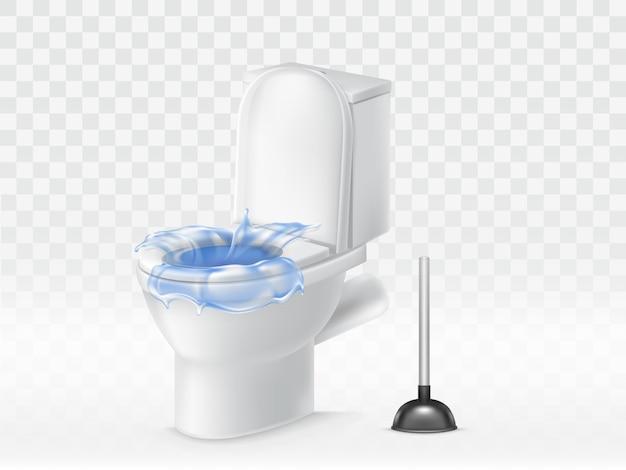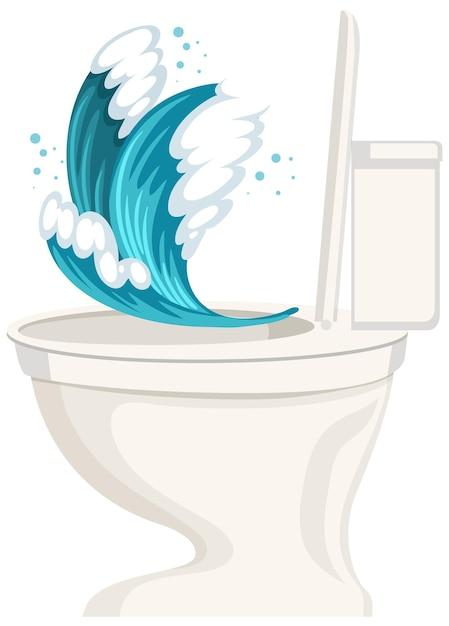Imagine this scenario: you’re using a public restroom, and as you’re flushing the toilet, you notice water splashing up. Suddenly, a question pops into your mind: can you get an STD from toilet water splashing? It’s a common concern that many people have, and in this blog post, we’re going to dive deep into the topic to provide you with the answers you’re looking for.
We’ll explore the possible bacteria present in toilet water, discuss how dirty it really is, and address whether toilet water can make you sick. We’ll also explore the risk of contracting STDs like chlamydia from toilet water splashing. So, if you’ve ever wondered about the dangers lurking in your bathroom, keep reading to uncover the truth about toilet water and its potential health risks.
Can You Get an STD from Toilet Water Splashing
Is It Possible to Contract an STD from Toilet Water Splashing
We’ve all heard the urban myth that you can catch a sexually transmitted disease (STD) from toilet water splashing onto your skin. But is there any truth to this claim? Let’s dive deep into the topic and uncover the facts behind this peculiar fear.
Understanding the Transmission of STDs
STDs are typically transmitted through sexual activities such as vaginal, anal, or oral sex. They can be caused by bacteria, viruses, parasites, or fungi, and are passed from one person to another through contact with infected bodily fluids, such as blood, semen, vaginal fluids, or breast milk. While toilet water does contain some bodily waste, it is highly diluted, making it unlikely to cause infection.
The Dilution Effect
Toilet water is constantly flushed with clean water, significantly diluting any potential pathogens present. Additionally, most STD-causing organisms are fragile and cannot survive for long outside the human body. This means that even if a tiny droplet of contaminated water were to splash onto your skin, the chances of contracting an STD are incredibly slim.
The Battle of the Toilet Seat
Another concern often associated with toilet-related STD transmission is the use of toilet seats. While it is theoretically possible for an STD to survive on a toilet seat, the likelihood of infection is still extremely low. Most STDs require direct contact with mucous membranes or broken skin to enter the body, which is unlikely to occur from simply sitting on a toilet seat.
Protecting Yourself
Although the risk of contracting an STD from toilet water splashing is negligible, it’s always wise to take precautions to protect yourself and maintain good hygiene. Remember to wash your hands thoroughly after using the restroom, avoid touching your eyes, nose, or mouth with unwashed hands, and practice safe sex by using condoms and getting regular check-ups.
While the idea of getting an STD from toilet water splashing may seem alarming, it is important to separate fact from fiction. The dilution effect, combined with the fragility of STD-causing organisms, makes it highly improbable for toilet water splashes to transmit sexually transmitted infections. By understanding the basic modes of transmission and practicing good hygiene, you can enjoy your time in the bathroom without unnecessary worry.
Note: The information provided in this article is for educational purposes only and should not be considered as medical advice. If you have concerns about your sexual health, it is always best to consult with a healthcare professional.
FAQ: Can You Get an STD From Toilet Water Splashing
Toilet water splashing is a common concern for many people when it comes to hygiene and potential health risks. In this FAQ-style subsection, we will address some frequently asked questions about the possibility of contracting STDs from toilet water. So, let’s dive in and separate fact from fiction!
What Kind of Bacteria Is in Toilet Water
Toilet water contains various bacteria that naturally inhabit our bodies and the environment. While the thought of bacteria might sound alarming, most of them are harmless and pose no significant threat to our health.
How Dirty Is Toilet Water
Contrary to popular belief, toilet water is not as dirty as you might think. In fact, most modern toilets are designed to reduce the spread of germs and minimize contamination. Regular cleaning and maintenance of toilets also play a crucial role in keeping them hygienic.
Can Toilet Water Make You Sick
Unless you actively drink or come into direct contact with contaminated toilet water, it is highly unlikely to make you sick. It’s essential to practice good hygiene by washing your hands properly after using the restroom to minimize any potential risks.
What Diseases Can You Get From Toilet Water
The chances of contracting diseases from toilet water are incredibly low. STDs, in particular, are unlikely to be transmitted through toilet water splashes. These infections typically require direct contact with infected bodily fluids or skin-to-skin contact.
Are Toilet Plumes Real
Yes, toilet plumes are real phenomena. When you flush a toilet, it creates a small plume of aerosolized water droplets. However, the risk of contracting an STD from these droplets is minimal. The main focus should be on practicing good hygiene, such as washing your hands thoroughly.
Can You Get an Infection From Toilet Water Splashing
The risk of getting an infection from toilet water splashing is extremely low. STDs require direct contact with infected bodily fluids or skin-to-skin contact. It’s important to remember that the transmission of these infections occurs primarily through sexual activity.
Can You Get Chlamydia From Toilet Water
No, getting chlamydia from toilet water is highly unlikely. Chlamydia is primarily transmitted through sexual intercourse, unprotected oral sex, or, less commonly, from an infected mother to her baby during childbirth.
How Can You Get Chlamydia If No One Cheats
Chlamydia can be contracted without any cheating involved. It is an STD that can be transmitted through sexual contact with an infected individual. It’s possible for either partner to have chlamydia unknowingly, as the infection can be asymptomatic in some cases.
How Did I Get Chlamydia If I Didn’t Cheat
If you’ve been diagnosed with chlamydia but haven’t been involved in any sexual activity outside of a monogamous relationship, it’s important to remember that infections can lie dormant for extended periods. Furthermore, it’s possible for either partner to carry the infection without showing symptoms.
How Dirty Are Public Bathrooms
Public bathrooms can harbor a range of bacteria due to multiple users and varying cleanliness levels. However, the risk of contracting an STD from toilet water in these facilities remains extremely low. Practicing good hygiene, such as using toilet seat covers and washing your hands thoroughly, can further reduce any potential risks.
How Do I Make My Toilet Water Not Splash
To minimize toilet water splashing, you can try a few simple tricks:
- Close the toilet lid: Closing the lid before flushing can significantly reduce the amount of water droplets that escape.
- Flush gently: Instead of flushing forcefully, try a gentler approach to minimize splashing.
- Consider adding toilet mats or rugs: Placing a mat or rug around the toilet can help absorb any splashes and keep your bathroom floor dry.
While the thought of contracting an STD from toilet water splashing might be worrisome, it’s important to understand that the risk is incredibly low. Practicing good hygiene and engaging in safe sexual practices remain the most effective ways to prevent the transmission of STDs. So, rest easy and focus on keeping yourself healthy and happy!

